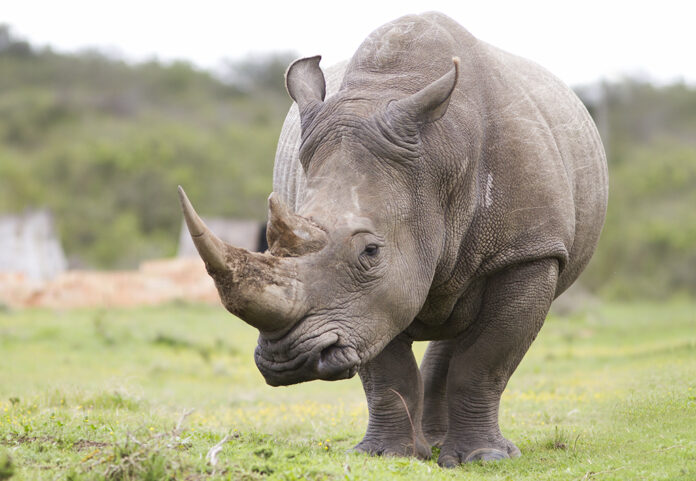A conservation nonprofit backed by several billionaires has agreed to fund the relocation of an eighth of the world’s white rhinos to protected wild areas.
African Parks, whose backers include the charitable foundations of Howard Buffett and the Walton Family, has bought a ranch in South Africa that houses about 2,000 of the endangered animals from a private breeder. Over the next decade, they will be reintroduced to protected areas across Africa where numbers have been decimated by a century of legal hunting and poaching.
“With the global rhino population, this is by far and away the most significant single project that’s ever been undertaken,” Peter Fearnhead, the chief executive officer and co-founder of African Parks, said in an interview. It is going to be the biggest translocation exercise of large animals “not just in Africa, but I think probably anywhere in the world,” he said.
The deal, which has been approved by South African regulators, ends a saga that left the fate of a key population of one of the world’s most iconic animal species in limbo.
John Hume, the octogenarian owner of Platinum Rhino Project, started breeding the animals on his ranch about 160 kilometers (100 miles) southwest of Johannesburg in 2009, but after spending about $150 million he said he ran out of funds to pay for their upkeep. An auction for the property and animals earlier this year failed to attract any bids.
“African Parks paid a small percentage of the price Mr Hume was hoping to attract when he put the program up for auction,” Fearnhead said.
Many of the animals will be relocated and reintroduced to the wild in 22 national parks that cover 20 million hectares (49.4 million acres) across 12 countries from Angola to South Sudan and are managed by the nonprofit. Other sites will be considered depending on security and other factors.
Hume’s animals are southern white rhinos, a sub-species that was almost extinct a century ago. Its numbers have been built up from a population of 40 to 50 animals found in South Africa’s Hluhluwe Imfolozi Game Reserve. Northern white rhinos, which are very similar but lived across east and central Africa, are functionally extinct with just two left in a park in Kenya.
African Parks, which was founded in 2000 to help address a decline in protected areas across Africa because of poor management and a lack of funding, will aim to relocate about 300 rhino a year, Fearnhead said.
It will cost about $1,500 to move each animal by road in South Africa and about $5,000 to $10,000 in southern Africa, he said. Airlifting them to parks in countries such as the Democratic Republic of Congo and Rwanda, countries where African Parks has previously relocated rhinos, will cost about $50,000 each. Funding has been secured for the first year of relocations and more money will need to be sought after that.
Illicit Market
In addition to the Howard G. Buffett Foundation and the Rob Walton Foundation, African Parks’ funders include foundations set up by South Africa’s billionaire Oppenheimer family and Swiss medical equipment tycoon Hansjoerg Wyss. African governments in countries where the parks are managed, the European Union and organizations such as the Netherlands National Postcode lottery also contribute.
Hume sought to make his project viable by campaigning for the legalization of the trade in rhino horns—which can be sawn off live animals and grow back. The trade is banned as use of the horns in East Asia, where they are believed to cure cancer and boost virility, gave rise to an illicit market and poaching.
South Africa, which is home to most of the world’s white rhinos and some black rhinos, has been battling poachers for more than a decade. It lost more than 1,000 animals to criminals every year from 2013 until 2017, with the animals often being hunted at night, shot with automatic weapons and their horns sawn off and smuggled to countries such as Vietnam. The cost of illicit rhino horn often matches that of gold.
While the number of the animals killed illegally has fallen over recent years, a severe drought over the 2015-2016 season further depleted their numbers in the Kruger National Park, the country’s biggest reserve. Many private owners are now reluctant to keep them because of the cost of providing security.
The animals at the Platinum Rhino ranch are free to roam large areas of the property and are given additional food in winter. There is also a facility to take care of sick and orphaned calves.
This article was provided by Bloomberg News.


